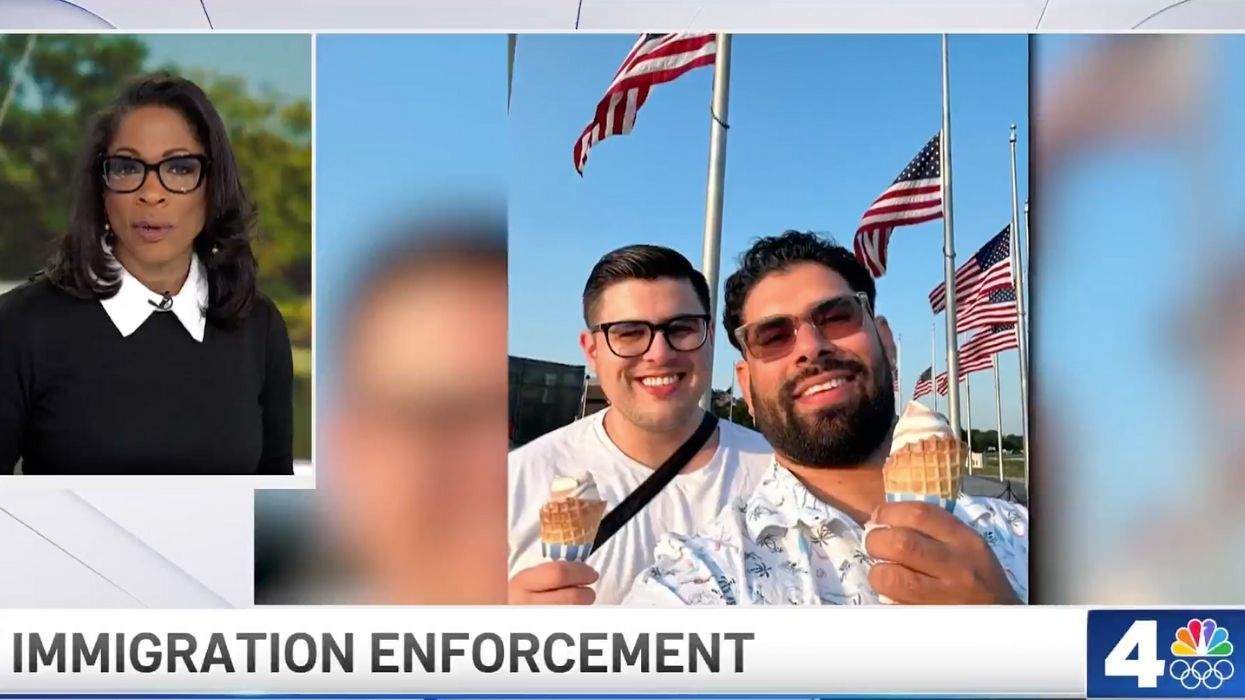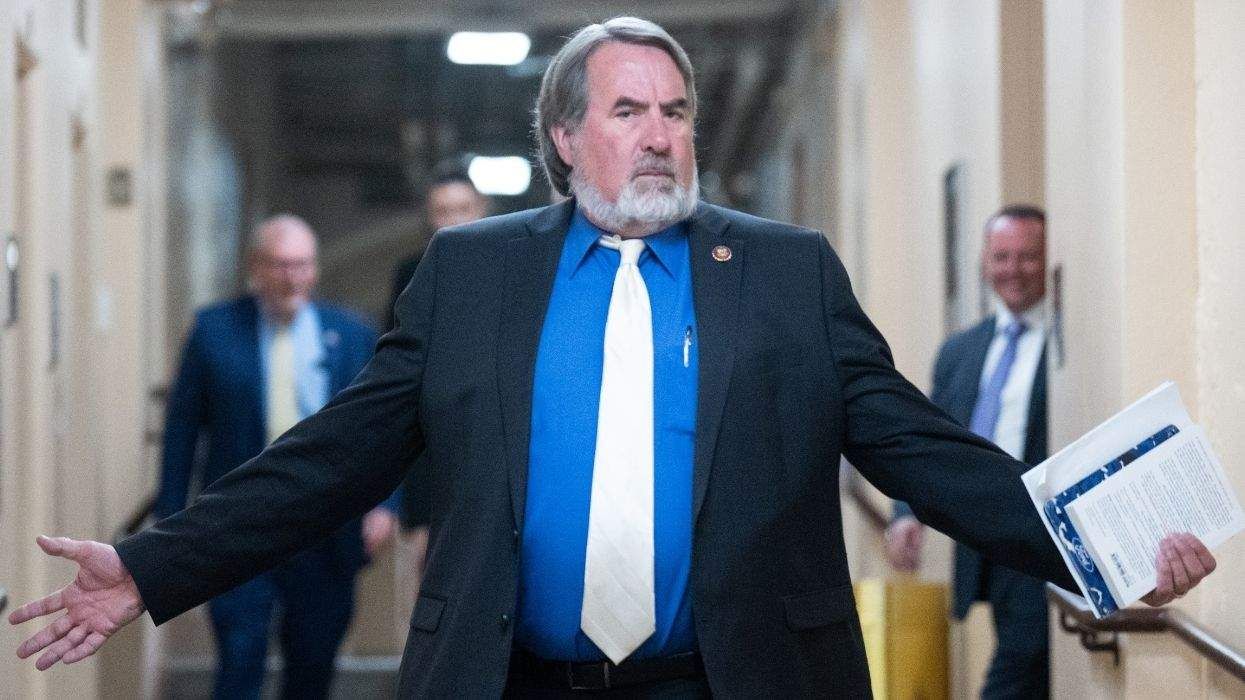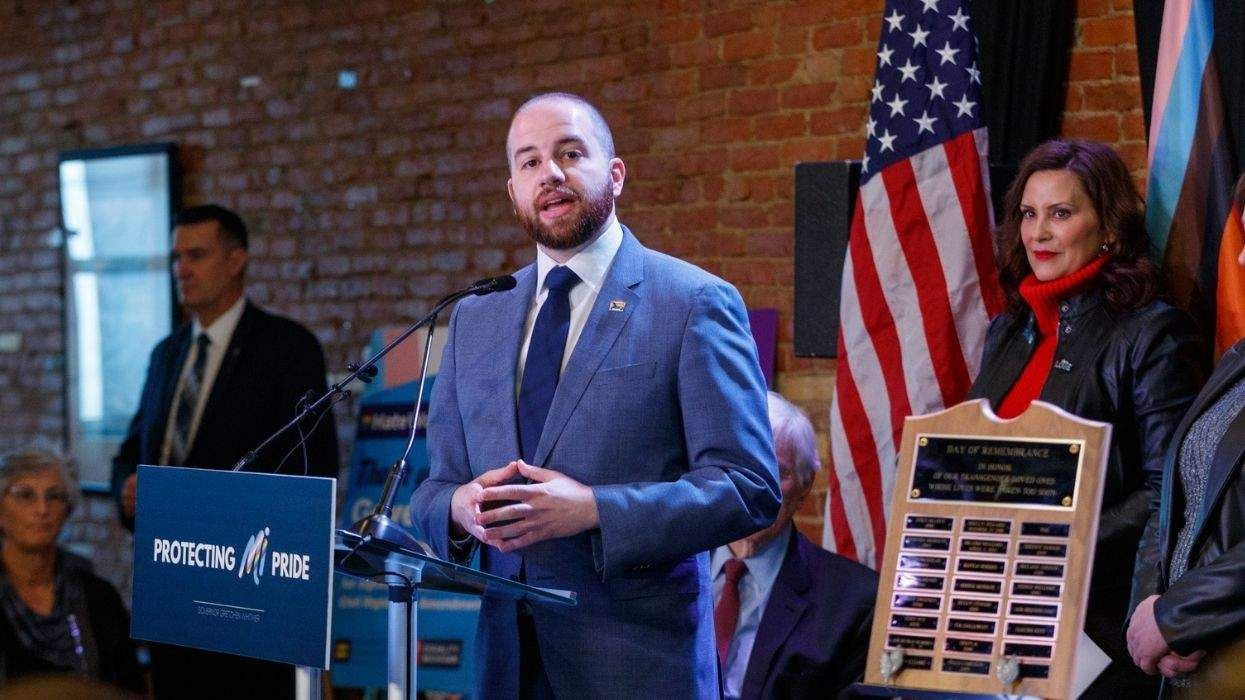Same-sex marriages are continuing uninterrupted in Puerto Rico despite a federal judge's ruling that the U.S. Supreme Court's marriage equality decision doesn't apply there -- and some legal advocates are seeking to assure that there will be no interruption.
U.S. District Court Judge Juan Perez-Gimenez's March 8 ruling goes against "both logic and settled law," says Lambda Legal staff attorney Omar Gonzalez-Pagan. Perez-Gimenez ruled that the Supreme Court's Obergefell v. Hodges ruling establishing national marriage equality doesn't affect Puerto Rico because it is an unincorporated territory and not, as he wrote, "the functional equivalent of a state."
But there's a long history, Gonzalez-Pagan says, of U.S. courts agreeing that decisions on fundamental rights apply in both states and territories -- and in Obergefell, the Supreme Court found that the right to marry is indeed fundamental, no matter the gender of one's chosen spouse.
The day after Perez-Gimenez issued his decision, Puerto Rico Gov. Alejandro Garcia Padilla told residents of the territory to ignore it. He said the fundamental right to marry was validated by higher courts than the district court -- that is, the U.S. Supreme Court and the U.S. Court of Appeals for the First Circuit -- and that he would respect their rulings. But to make sure that marriage equality for the territory remains enshrined in law, Lambda attorneys and their co-counsels from private law firms have turned to the First Circuit.
Last week they filed a petition asking the First Circuit to make clear that the Obergefell ruling applies in Puerto Rico and to assign the case to a different judge at the district level to enter a judgment that all provisions of Puerto Rico law that ban licensing and recognition of same-sex marriage are to be stricken as unconstitutional and no longer enforceable. This was what both the plaintiffs represented by Lambda and the government of Puerto Rico had asked Perez-Gimenez to do, and he denied that request.
There was a circuitous route to his March 8 ruling. Perez-Gimenez upheld Puerto Rico's ban on same-sex marriage in October 2014, in a ruling in which he wondered if bans on incest and polygamy could be struck down if the marriage ban were. The couple challenging the ban, represented by Lambda, then appealed his decision to the U.S. Court of Appeals for the First Circuit. After the Obergefell decision, territorial officials, who had been defending the ban, agreed with the plaintiffs that the law was unconstitutional.
So did the First Circuit, which vacated Perez-Gimenez's ruling and sent it back to him for further consideration in light of Obergefell, adding, "We agree with the parties' joint position that the ban is unconstitutional."
But Perez-Gimenez did not agree, and his decision, the attorneys argue in their petition, represents an "egregious misreading of settled Supreme Court case law." They note, "In denying the parties' Joint Motion for Entry of Judgment, the district court disregarded [the First Circuit's] mandate to apply the constitutional principles articulated in Obergefell to the Marriage Ban. In so doing, the district court not only disregarded decades of well-established law regarding the applicability of the constitutional promises of liberty and equality to the people of Puerto Rico, but also singled out LGBT persons in Puerto Rico to deprive them of their rights."
Their filing is not a simple appeal, but a mandamus petition -- seeking what is called a writ of mandamus, a court order for a lower court to perform a specific task. The petition states that "ordinary-course appellate review" would not be sufficient in this case, as Perez-Gimenez's list of conditions for reconsidering his decision do not include a First Circuit ruling. Instead, he said Puerto Rico could establish marriage equality through further action by the U.S. Supreme Court or the Puerto Rico Supreme Court; congressional action changing Puerto Rico's status from an unincorporated territory to an incorporated one; or repeal of the marriage ban by Puerto Rico's legislators. Also, his ruling was made in such a way as to not permit immediate appeal.
Perez-Gimenez seems to have a deep-seated opposition to marriage equality. Gonzalex-Pagan declines to speculate on the judge's personal views, but says it's clear he was trying to find Puerto Rico's marriage ban constitutional.
The mandamus petition does note that Perez-Gimenez "began [his] opinion with an epigraph that was a paean to the virtues of marriage as a heterosexual institution: The district court quoted at length the Supreme Court's 1885 decision in Murphy v. Ramsey... which describes marriage as a 'holy estate,' 'the union for life of one man and one woman,' 'the sure foundation of all that is stable and noble in our civilization,' and 'the best guaranty of that reverent morality which is the source of all beneficent progress in social and political improvement.'"
His original ruling in 2014 also contained language that gave equality advocates pause. He took issue with judges who had ruled for marriage equality, writing, "In their ingenuity and imagination they have constructed a seemingly comprehensive legal structure for this new form of marriage. And yet what is lacking and unaccounted for remains: are laws barring polygamy, or, say the marriage of fathers and daughters, now of doubtful validity?"
Perez-Gimenez was only the second federal judge to rule against marriage equality after 2013's Windsor v. U.S. decision by the Supreme Court, which gutted the Defense of Marriage Act and led to numerous pro-equality rulings.
There's no word on when the First Circuit may rule on the mandamus petition. But in the meantime, same-sex couples continue to marry in Puerto Rico, as they have since last summer, and Gonzalez-Pagan says those who have married have nothing to worry about. "We have no doubt whatsoever that the marriages are valid," he says.















Charlie Kirk DID say stoning gay people was the 'perfect law' — and these other heinous quotes
These are some of his worst comments about LGBTQ+ people made by Charlie Kirk.